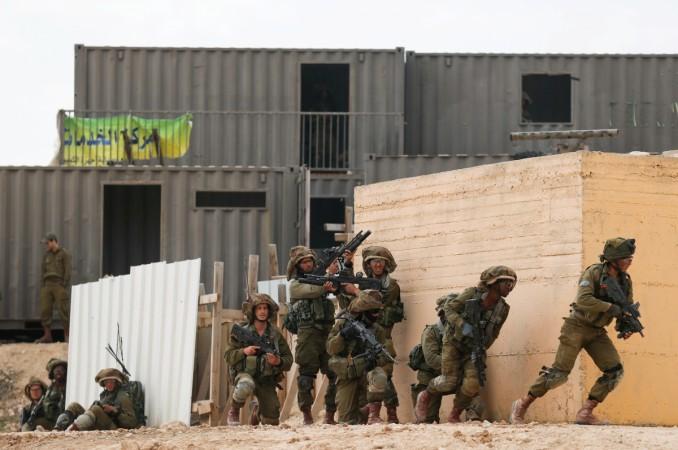
Old fears about an Israel-Iran showdown have resurfaced as the Syrian war entered the eighth year. Top leadership in Tel Aviv and Tehran have reiterated the commitment to avert a direct conflict, but war clouds are gathering over the world's most unstable region.
The arch enemies in the Middle East have a history of intense covert conflict over the Lebanese turf. Now, the high intensity push and shove has shifted to the Syrian war theatre. The upper hand gained by Bashar al Assad in the Syrian war in recent months has precipitated the escalation of tension between Iran and Israel.
Assad has now regained control over almost 80 percent of the country with the help of the Iranians and the Russians. The increasing presence of the Iranians in Syria is seen in Tel Aviv as a direct security threat. Israel fears that the Iranians in Syria will bolster the Hezbollah in Lebanon and will give them easier access to military hardware.
Israel increased its air raids inside Syria in recent weeks to pre-empt the Iranian buildup. One such strike on Iranian dugouts inside Syria killed at least seven members of Iran's elite Revolutionary Guards soldiers. Israel's IDF is now preparing to face down Iran's retaliation, the Jerusalem Post reported.
The air strike was carried out by two F-15s that launched guided missiles from Lebanese airspace targeting Syria's T4 airbase. Senior Revolutionary Guard officer Col. Mehdi Dehghan was among the soldiers killed.
Meanwhile, Iran condemned Israel's alleged violations but said it's not anticipating a war. "I do not believe that we are headed towards regional war," Iranian Foreign Minister Mohammed Javad Zarif told CBS's Face the Nation. However, he added that Israel is acting with impunity because of the US support. "Israel has continued its violations of international law, hoping to be able to do it with impunity because of US support, and trying to find smokescreens to hide behind."
Israeli Defense Minister Avigdor Lieberman also echoed the same note when he said: "I think that our primary role is to prevent war, and that requires concrete, real deterrence as well as readiness to act." However, Lieberman let nothing to imagination when he added: "No matter the price, we will not allow a noose to form around us."
When Assad was in power Israel had a running conflict with him, and it always had the upper hand. It had to worry only about the proxies. Now that Syria has imploded and Assad has willingly sacrificed his sovereignty, his country has turned into a playground of militias that Israel sees as a direct threat. Assad's survival essentially depends on multiple militias that sprang up during the lengthy civil war. And most of the powerful militias like National Defense Forces (NDF) and Popular Mobilization Forces (PMU) have an Iranian stamp on them. These and many other local militias are funded by Tehran.
Iran now has its own air force operating inside Syria and Tehran's permanent military bases inside Syria are in the works. This adds on to the sizeable ground presence Iran-backed Hezbollah has had inside Syria. This is the noose that Lieberman hinted at. Israel can ill afford to let that tighten around it, especially as a pre-occupied US is never fully invested in the Syria campaign.
Following the air strike that killed Revolutionary Guards colonel, Iran warned of dire consequences. "The finger is on the trigger and the missiles are ready at any given moment that the enemy conducts something against us, and we will launch them," Quds Force Commander Qassem Soleimani said.
As tensions escalated, the Israel Air Force scaled back its participation in the Red Flag exercise in Alaska, the Jerusalem Post reported. By recalling its elite fighter squadrons from the drill Israel showed it's bracing for a possible Iranian strike.
Brookings Institution last week said an Iranian attack on Israel was only a matter of time. What is left for conjecture is the target, the report says. By all means Iran's retaliatory strike will be a missile attack from inside Syria. While the logical target would be an Israeli military base, the chances of Tehran choosing a civilian target cannot be entirely ruled out, the report says.
Such a strike will certainly invite further counter attack from Israel as it can't "blink". While the stakes are high for both sides, for Israel it's even higher. "Predicting the long-term prospects and evolution of this conflict is more difficult, since both parties are willing to pay a high price for their strategic interests."

















